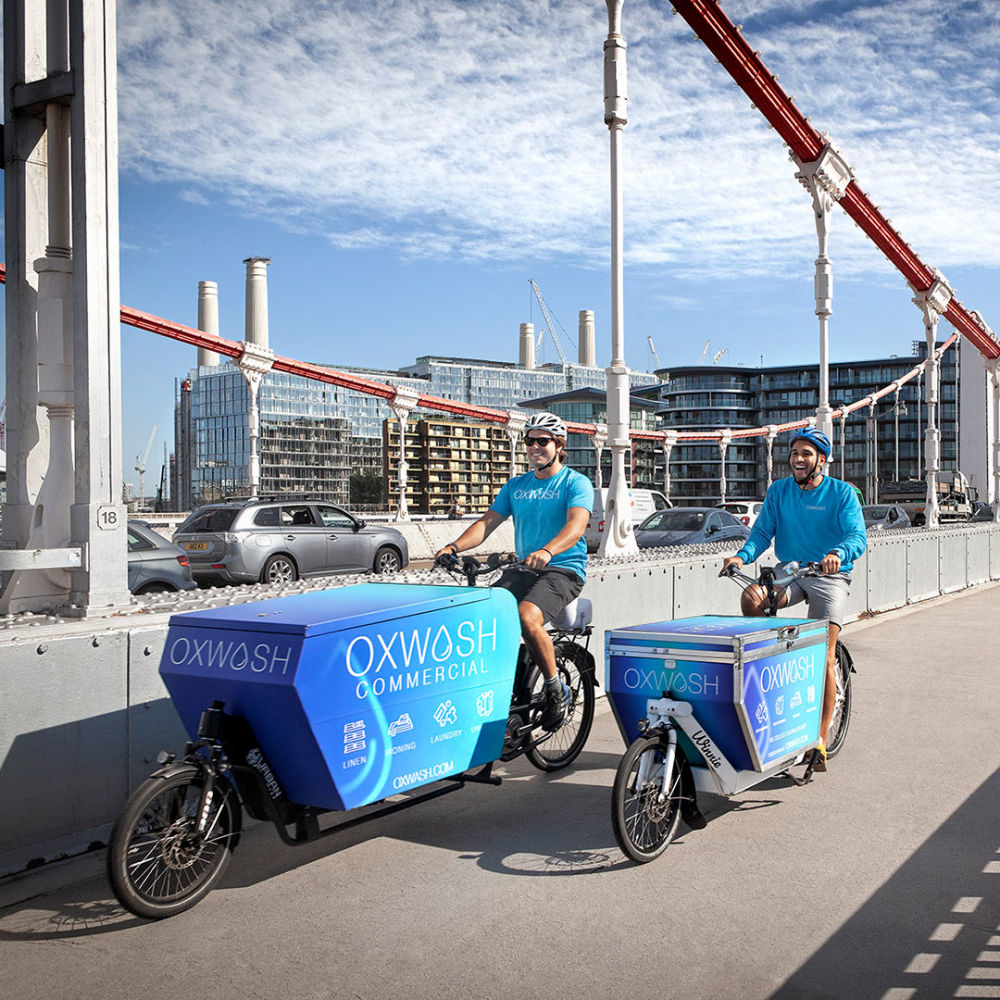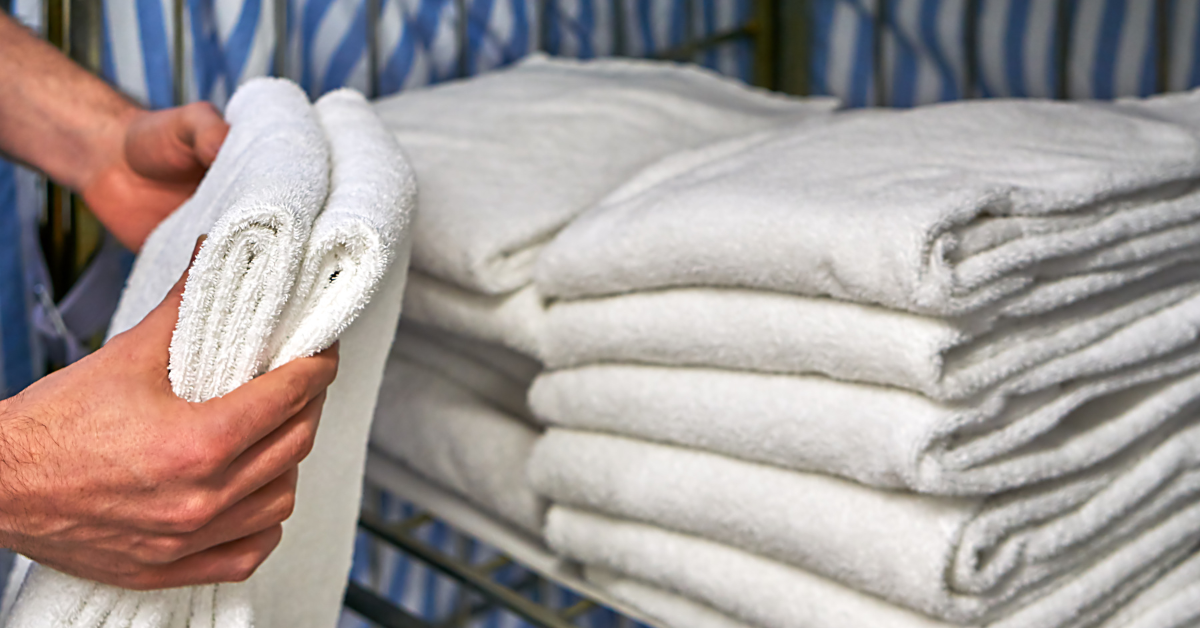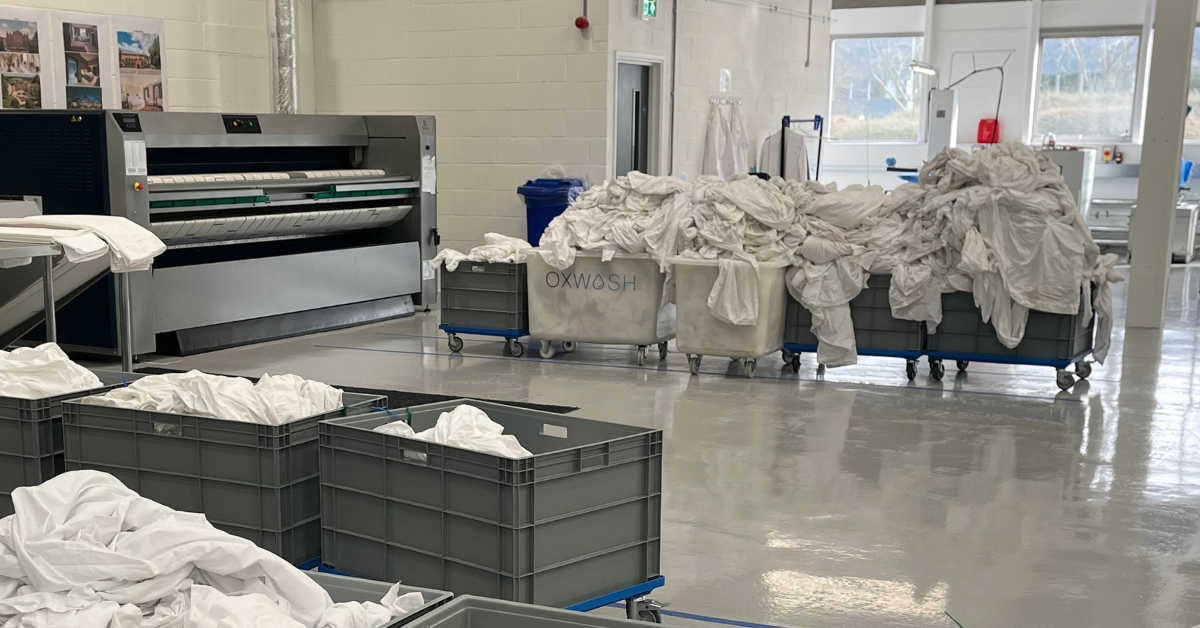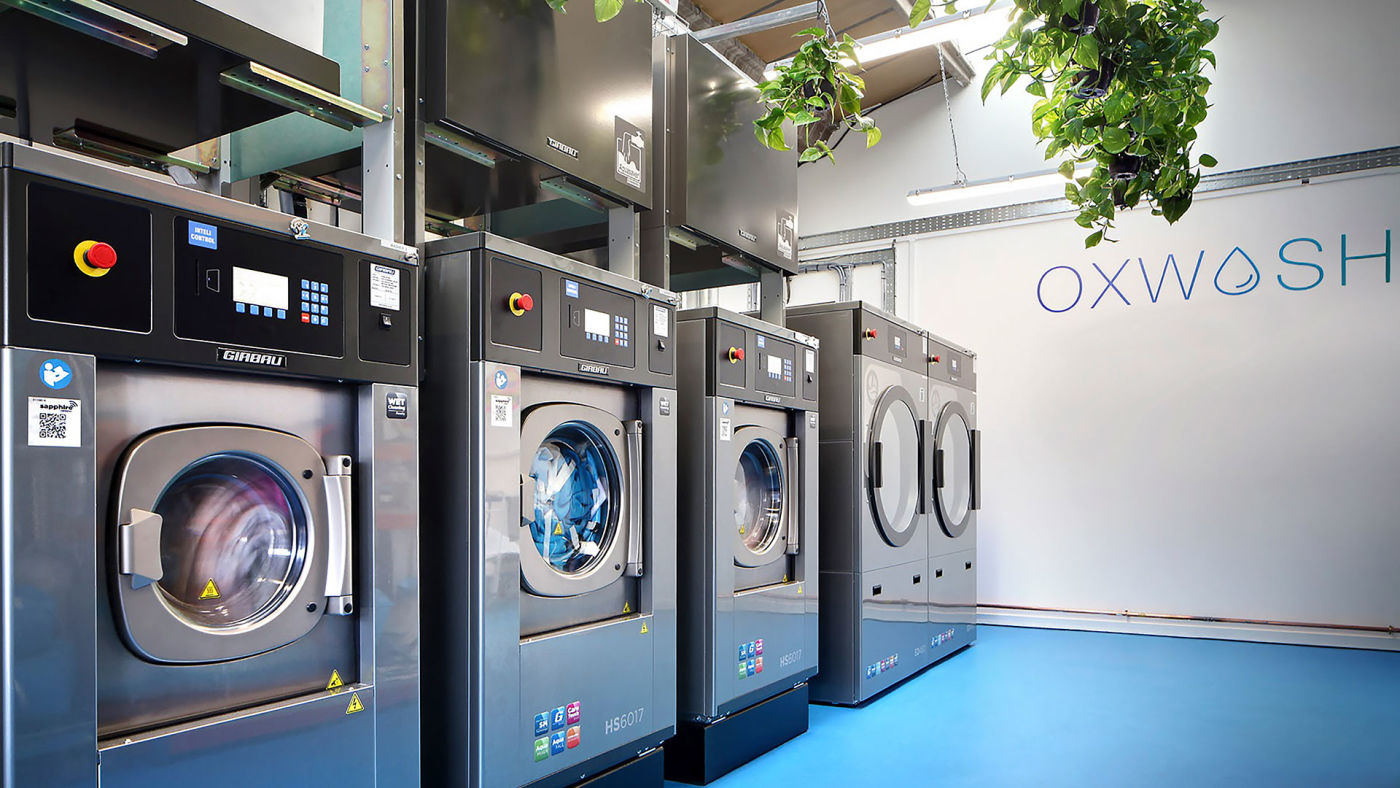LCAW 2020 - Washing For Our Future
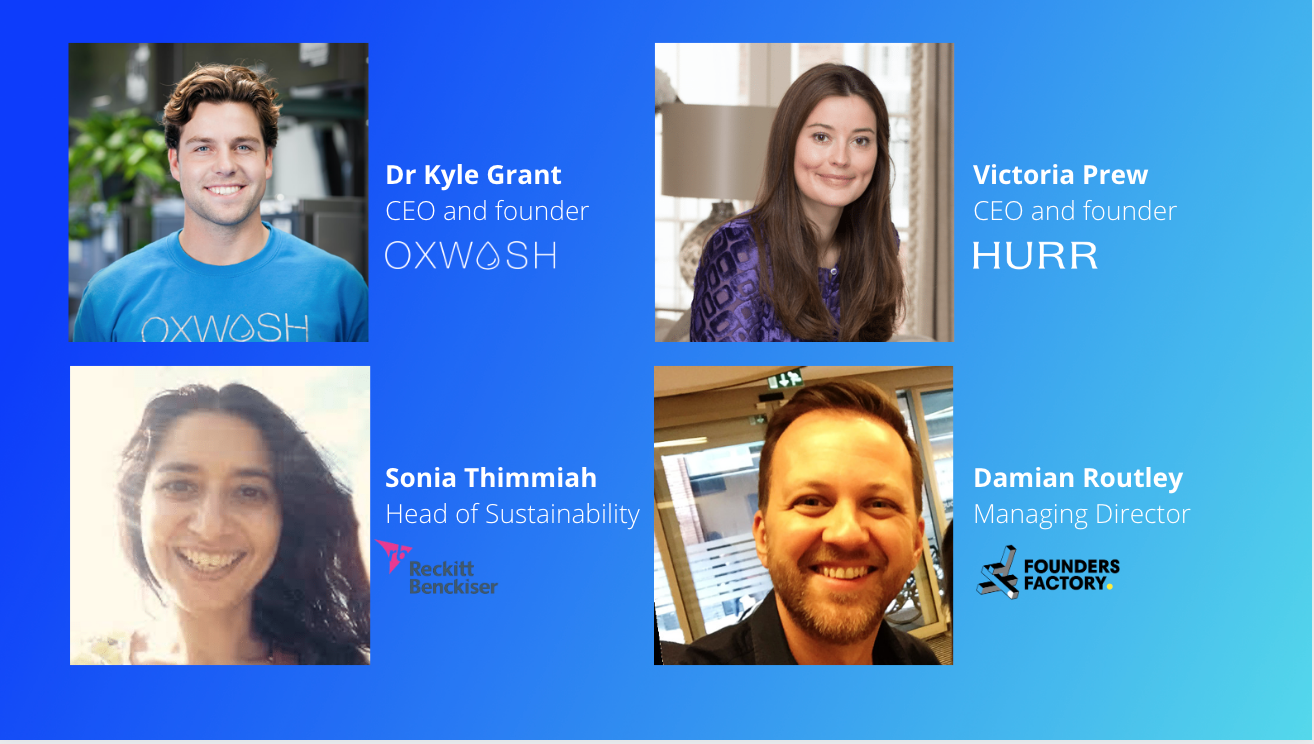

Sustainability
LCAW 2020
London Climate Action Week (LCAW) is an annual event that brings together world-leading climate experts. The aim is to help solve the climate emergency by sharing knowledge with others. At Oxwash, we are leading the change in the laundry industry towards more sustainable practices. On November 18th we hosted 'Washing for our Future' an online panel discussion with very special guests.
Meet the panel:


Host: Damian Routley, Managing Director at Founders Factory.
Dr Kyle Grant - Oxwash CEO
Victoria Prew - Hurr CEO
Sonia Thimmiah - Head of Sustainability at Reckitt Benckiser
The panel discussed ways in which consumers could embrace sustainability in everyday life, and the role start-ups play in this. Victoria and Kyle also explain what makes HURR and Oxwash a perfect fit after announcing their partnership.
You can read the transcript of the panel discussion below:
Damian (Interviewer): A big issue in the fight against climate change is the lack of consumer awareness. In fact, not many customers would be aware of just how polluting their laundry cycle is. Kyle, how did you become aware of this and what inspired you to fix it?
Kyle: The lid for me got lifted the first time I visited a commercial laundry. When I started Oxwash I did the laundry at home in my own machine with a Deliveroo backpack, but I very quickly got to the stage where that was no longer tenable, so I partnered with a laundry just down the road. When I went in I saw a scene that was reminiscent of a Victorian era sweat-house. Vast amounts of water, chemistry, energy being used, not to mention the amount of bleach used, the chlorine which you can feel in your nostrils and stings your eyes. The way that people were treated, cash in hand under the books, was really scary in this industry. I had a bee in my bonnet for finding out if this is done better elsewhere. Turned out that wasn't the case, thus I made it my mission to go and see as many other laundries around Europe and North America to see if this was ripe for innovation, and it really is. We're proud to be leading the charge in that regard.
D: One of the things that struck me was the sort of the effluent waste from the industry and what impact that has. Can you tell us a little bit about that?
K: Traditionally when you do laundry at home or if you send it off to a service, vast amounts of chemistry are used as well as drinking water, that really doesn't need to be drinkable: your clothes and dry cleaning don't drink water like we do. Hundreds of litres of water are wasted tainted with chemistry and phosphates, this endangers our water systems causing eutrophication. This is where the oxygen levels in water decrease, leading fish to die. On top of this millions of microfibers that shed from our clothes are sent down the drain and do not get filtered at any point in the refuse and reclamation process. These plastic microfibers end up back in the food chain and it's now proven that most humans who get tested for microfibers, have them. We really don't know the impact that that has on ourselves so it's quite scary.
D: In the fashion world the problem is quite different in that conversations around fast fashion, unnecessary waste and the impact that the fashion industry has on the environment have been widely discussed for many years, yet recently seems to have exploded - why do you think that is?
Victoria: We started HURR over three years ago, I remember pitching the idea to some pretty big fashion houses and they all said ‘actually we think fast fashion is always going to survive and sustainable fashion is a trend not a movement, people don't care where their clothes come from’. Three and a half years later we're now at a stage where we've all seen fast fashion on the front of every newspaper and the horror stories. The gen Z's and the millennials are definitely leading the charge and sustainability and there are two really interesting models: Resale and Rental. On the resale side we've seen the massive boom of Depop type models where the stereotype that sustainable fashion is ‘just for the elites’ or ‘coming at a certain price point’ has been debunked - now you can buy a second-hand top for £5/10! Then rental is a slightly newer model in the UK market, trying to combat this a massive issue of waste and the question of: do we need as many clothes in the world? It's a really pivotal time where the customer is waking up.
I founded HURR partly because I want to convert the girl who is shopping on a fast fashion website every night for her outfit that weekend and show her that renting or resale is a viable alternative. We want to provide luxury fashion at fast fashion prices and that's the way that hopefully we can win. People think renting is a bit of a faff and actually we spent a long time trying to make HURR look and feel like e commerce but without the environmental impact. We'll be physically launching back up hopefully early December; actually having a physical bricks and mortar pop up in Selfridges has been absolutely crucial for us. I’ve worked on the shop floor and seeing those cogs go in that customer's head of ‘I don’t have to spend 300 pounds on this dress, I can spend 50 pounds as I know statistically I'm only going to wear it once anyway’.
D: Part of what we are doing here today is to help raise awareness of just how polluting our instilled everyday behaviour can be. What do you think is the role of brands in encouraging consumers towards more sustainable choices?
Sonia: At Reckitt Benckiser (RB) we sell ~ 20million products every day, so we have a huge platform to really drive positive change. With the privilege of being in so many households comes responsibility. We started with the UN SDGs and thought, ‘Let's look at that as the problems that the world has to address by 2030’. There's an urgency to the action that's needed to try and reduce some of those negative impacts. We’ve gone through a process to really understand what it is that we want our brands to do and are the roles we want them to play.
Each of our brands have gone through this process to ask, where can we really have a meaningful impact to drive positive change? How can we be authentic? How can we drive measurable positive outcomes? Which SDG is most relevant to us? With Vanish, our brand most closely associated with fashion, we have a mission to give clothes many lives. We are on a mission to raise awareness with our consumers about the impact of fashion, but also to really inspire behaviours, to change how people care for and also pass on clothes. If you look at all the carbon emissions from the fashion sector. It's more than international flights and shipping combined globally.
D: What is the role for smaller enterprises for startups in order to address some of these challenges?
S: What I love about startups like Oxwash is that they provide a fundamentally different business model than some bigger companies. For consumers, it's having options that bring that accessibility that Victoria talks about. Start ups have the agility, as well as the innovation to bring some of those different ways of working which are really compelling to consumers.
V: Generally, startups are able to execute extremely quickly, there's not those extra levels of decision making and it means that you can turn things around and really react to the customer ASAP. It's a great time for larger companies to access that tech or access that innovation that Oxwash or HURR are creating, without having that massive commitment to build which takes years. We all know there is a massive urgency to solve sustainability issues in the fashion industry, whether it's dry cleaning or climate change. It's so great to be growing at a time where disruptive startups can actually partner with the bigger players, if they are providing a solution that the larger brand sees value in.
K: Startups have a unique position where you can build your mission. Oxwash are working towards becoming a B Corp in the next couple of months, which we find is a lot easier because we can build into place the policies protocols and missions and purposes that we need to be able to achieve that, whereas I think that's much much harder for a big corporation to do in reverse. As a startup it's our duty to make our services, products, and everything better. Completely aspirational to the point where people want to be associated with it, making a choice that makes them feel good - nobody likes a purchase that makes you feel bad.
D: What is a B Corp?
K: B Corp is a new classification for a business that fulfils, not only its normal corporate governance, but at its core has both environmental and social benefits in mind, all the way to the point where in your Articles of Association for your business you clearly state that this business is not just for profit, but it's for the planet as well. There are lots of different facets of B corp that allow people to fit their businesses into a way to support local communities, that reduce the amount of consumables that they use reducing waste, but as well as supporting their team, and in a completely wholesale kind of way is just more beneficial for our lives as employees attacking these goals.
D: The fashion industry is notoriously seasonal and ever-changing in terms of trends, how do you ensure the pieces on your site stay relevant to keep the circular economy going?
V: I'd say that there's definitely a percentage of our user base that is after that Instagram piece that's blown up and these sold out pieces do incredibly well on the platform. The vast majority of our customer base is much less focused on season. We did a survey of our users and asked what does ‘A/W and S/S stand for and the vast majority have never heard of the terms, spring/summer and autumn/winter and the fact that there are different collections for different times, for our UK customer what they want is an amazing dress and instead of spending 300 pounds on it they're spending 30/40 pounds on it. And so I think in terms of how I see the fashion industry, I think we're going to see a massive shift away from this incessant desire for newness that, in the fast fashion world there's nearly a trend or a new collection all season every week. I mean, it's completely unsustainable.
D: As well as educating consumers, many companies now are taking a look internally to reduce their impact at a process level, something which is at the heart of both the Hurr and Oxwash operations. How important do you think it is that sustainability is not just a part of the company, but instilled throughout?
K: This boils down to two words, and that's Unit Economics. Tom (de Wilton, Oxwash COO) and I as engineers really interrogate each part of the collection of our customers items, the washing, the drying, the pressing, redelivery, and also then for many customers, the repeating of that process. When you step back, and interrogate the whole system is as one, you're able to see where your bottlenecks are where your inefficiencies are we have software through that whole process that we can analyse in real time, where or when or we need to put and press but as buttons to alleviate those problems so what that enables us to do was by coupling efficiency, with the use of overheads water chemistry energy is able to improve our unit economics to the point where for every load of washing that we do. It's up to 65% less water, energy, chemistry than you could even do at home. And that means that not only is it better for the environment, but also we save money, because chemistry, energy, and water gets expensive at scale.
D: What we can do as consumers to help address these damaging cycles?
K: My feeling is very strongly that we don't need 100,000 people consuming perfectly. We need several million people, especially in the UK and across the globe consuming responsibly. It's not a problem to put your hands up and say ‘I’m doing my best. I’m not perfect, but I'm trying’. As we've mentioned already, even just rebuying one item of clothing can be that kick that starts the flywheel of change, even for those around you, especially in your household, raising a family with those new kind of values instilled within your family can then pass that on to the next generation more naturally. We're still not perfect, but we know exactly what we want to do to achieve the net zero impact in the future and we're doggedly pursuing that so I think attention is often much more powerful than execution in the short term.
S: From a consumer standpoint, people have busy lives and there's actually a lot of information out there which can be confusing. My suggestion is rather than try and boil the ocean, pick the one thing that you want to do differently and pick the thing that you're passionate about, that's important to you, that's really going to move the needle. Don't think of it as a burden, think about it as something that you really want to do. With our brand Finish, we talk about skipping the pre-rinse. Don't pre rinse before you put your dishes in the dishwasher and that can save shedloads of water.
V: From a fashion point of view it's sharing a very clear message of quality over quantity and actually rather than buying 10 fast fashion dresses investing in one actually seeing it as an investment. Use the 30 wears rule: if you don't think you’re going to wear an item 30 times, don't buy it. I screenshot an item every time it comes into my inbox, and if I still like in a month or a couple of months, then I'll consider purchasing it. Yes I could miss out, but I'm sure I can live without it.
OXWASH | HURR PARTNERSHIP ANNOUNCEMENT
D: How did the Oxwash/HURR partnership form, and what made the two brands a good fit?
K: Our goal at Oxwash is to become incredibly good at washing items with as little environmental impact as possible, and change the mindset of consumers to do this with us. I really idolised the alternative experience that HURR is bringing to the fashion market and how this in turn is changing consumer behaviour. We completely buy into HURR’s mission and we're proud to be the pipeline that they are using for washing all of their rental items which, now in the time of COVID, is more important than ever. When sharing items, the hygiene and disinfection that we can achieve at greater than health care levels is really powerful to make sure that HURR items are safe to wear. We're very excited and super proud to be working with HURR moving forwards.
V: Today marks the first day of our official launch, dry cleaning has been a massive pain point in our model. For over three years I have tried to find a great solution to our dry cleaning problems. We've tried every which way, every single provider as it’s such an important part of our business. Using Oxwash we know we are getting space age technology that's used by the healthcare industry too. There's no point running a rental business that creates unnecessary waste or uses horrendous chemicals in their dry cleaning. It's a massive relief that I have found someone like Oxwash. By solving this massive pain point we can now get back to doing what we do best and scaling throughout the UK, with our dry cleaning and hand.
Related Articles
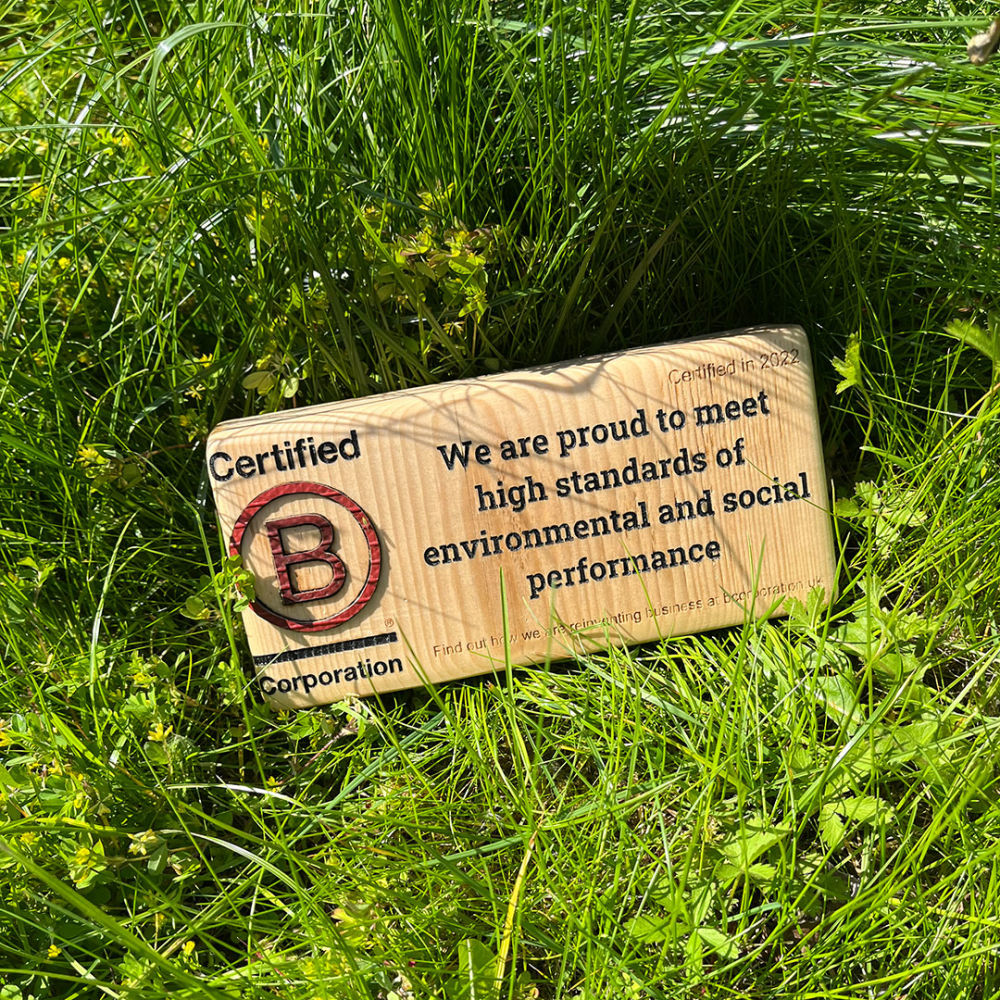

B Corp™ certified.
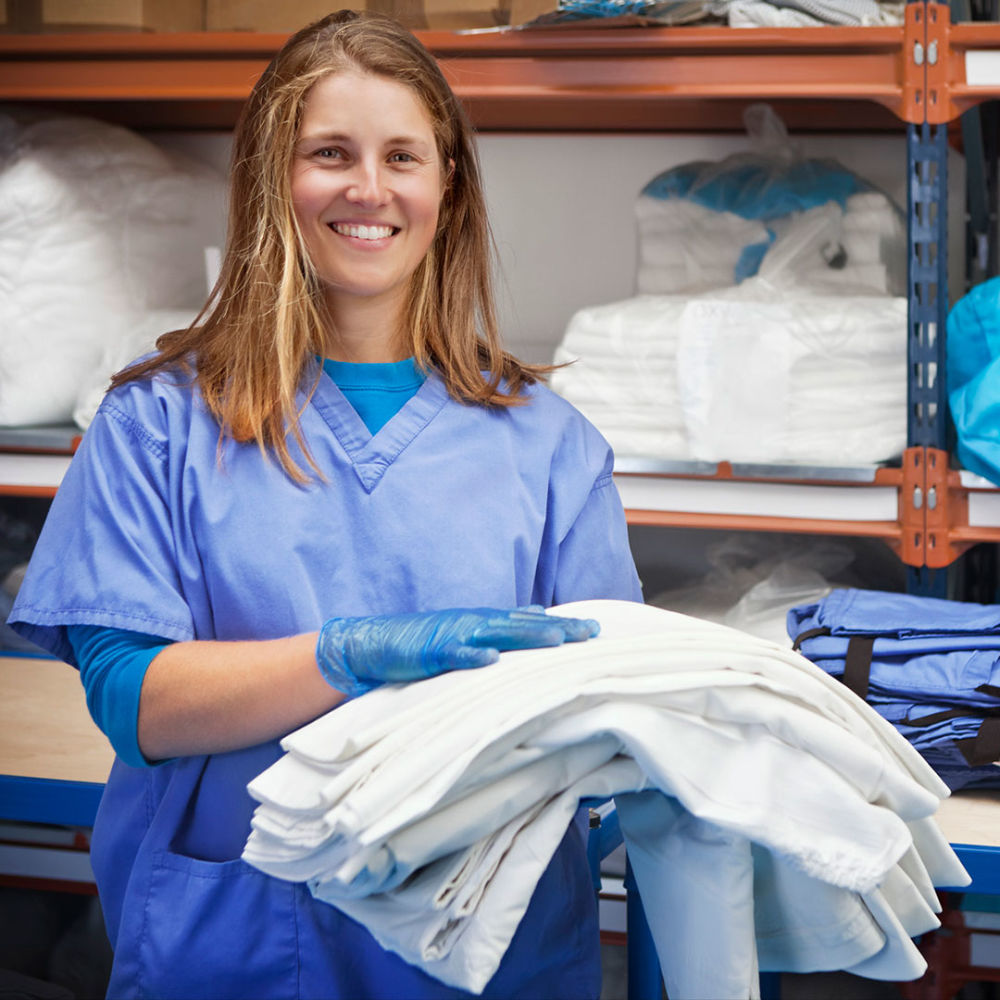

Surpassing NHS-grade disinfection.
